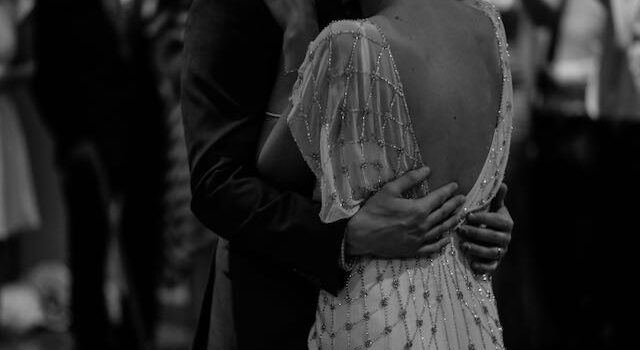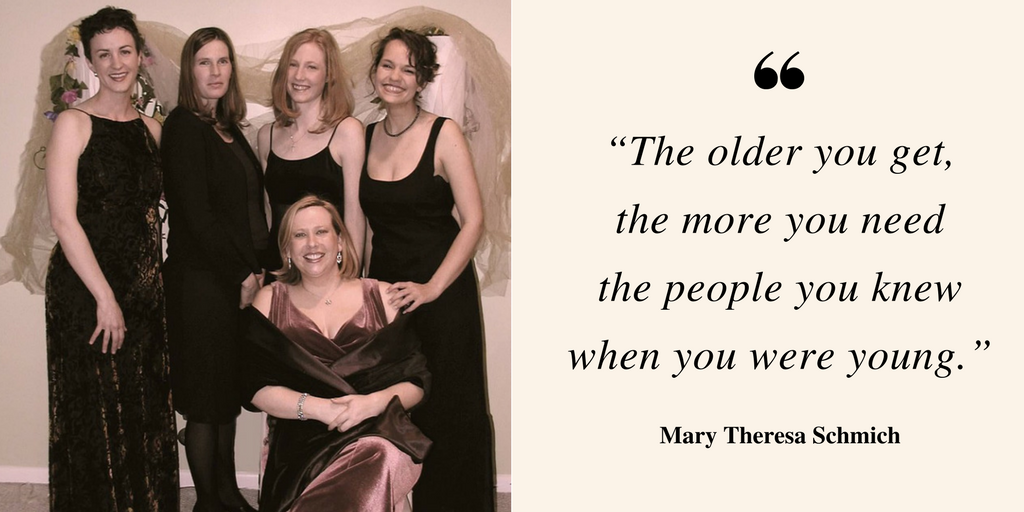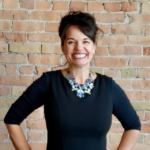
Valentine’s Day is a reminder to ponder love and put special care into writing about love. Every life story will have romantic and friend relationships that make up a person’s rich experiences.
The love interest is a catalyst
First, it is important to recognize that love makes for great storytelling. In classic story structure, the love interest shows up in the tale as a catalyst for change. A love interest or another key relationship will embody the theme, acting as a mirror to the hero and showing them a better way. Love stories add excitement, tension that builds suspense, and relatability. The people we love help make us who we are, shaping our experience in profound ways.
One question we no longer ask
The complexity of human relationships was on my mind, perhaps more than usual this year as I just finished writing an article for Family Tree Magazine about interviewing people around sensitive topics like war and trauma. In the article, I write about how broaching love and relationships requires checking in beforehand and reading the room. We used to have a question in our booklet that we no longer ask:
“Who was the love of your life?”
This is a great question, but only ask it if you check in beforehand
You do NOT want to spring that question on somebody. People’s loves can be deeply private and not for all audiences. It can be awkward to delve into this topic, only to discover that the person is reluctant to talk about past loves or difficulties in their current relationship.
Related resource: Oral history interview questions and audio resources
Would you make different choices?
People’s stories can involve “the one who got away,” unrequited love, and temporary or bad matches that produced children. These beg the impossible question, “Would you make different choices if you had the chance?”
How can we begin to answer that? Lessons learned and children born are gifts of the choices made.
That said, abusive situations, betrayal trauma, affairs, and other subjects can require a great deal of healing. People may or may not be ready to talk about it. Even if you journal about these experiences, you may not be ready to share them with others.
What advice would our ancestors give us if they could?
I would give so much to learn how my ancestors navigated their relationships. Some of the stories—like the 55-year love story of my parents—need to be told because they are inspiring. I suspect others were less happy, but they stayed together for practical reasons. What advice would they give if they could speak candidly?
That question guides me as I ponder my own life story. What helpful insights could I leave behind if I am brave enough to reveal vulnerable stories? I am divorced and have been dumb in love more times than I care to admit.
Yet, although we think of divorce as uncommon in the past, I’ve seen plenty of it in my nineteenth-century research. These surprising revelations have led me to believe the only reason there wasn’t more divorce was that people died younger. (I’m only half-joking).
Many paths and variations on love
One insight I’ve gained in my years of helping people work on their stories is that people have many variations on how to make life work. I will never forget Norma Kier telling me she fell in love with her sweetheart as a teenager and never loved another man her whole life. Others had rocky relationships but were glad they stayed together. Some divorced, some had many loves in one lifetime, some remained single and childless by choice, and some not by choice.
It is also important to acknowledge the many cultural approaches to marriage and family life. In the book How to Know a Person: The Art of Seeing Deeply and Being Deeply Seen, David Brooks says that the type of cultural norms most often seen in the United States are outliers worldwide.
For example, when people in American culture get married, Brooks writes, “They go off and set up their own separate household. But that is the dominant pattern in only 5 percent of the twelve hundred societies that have been studied. We often live in nuclear families. That’s the dominant family mode in only 8 percent of human societies. We have monogamous marriages. That’s predominant in only 15 percent of societies.”
[Brooks, David. How to Know a Person: The Art of Seeing Others Deeply and Being Deeply Seen (p. 238-239). (Function). Kindle Edition. Original research source: Joseph Henrich, “The Weirdest People in the world?”]
Even within our culture, each family has a unique approach and experience. In my work of collecting life stories, I’ve seen and heard many ways of finding happiness. Today, it would take a lot to faze me in an interview.
What patterns of love and relationship did you inherit?
One thing is certain. We all inherit certain relationship patterns, whether healthy or unhealthy. Examining these patterns can prove useful in retaining the good ones and breaking those that do not serve our well-being. A combination of dialogue with family members, journaling, writing, and therapy can help free us and future generations.
Related article: How to start or boost a journal writing habit
Writing about friendship

Another related topic is friendship. Who was there for you in your darkest hour? Every life story contains a cast of characters. As you write about love, remember to also write about friendship and the role that dear friends have played in the story.
Related article: Who is your best friend?
Related article: 5 tips for writing about friendship
Related resource: sensitive subjects tool kit for writing about the hard stuff

Rhonda Lauritzen is a professional biographer with multiple published books and a regular speaker at conferences. She has an MBA from the University of Utah and served as CEO of her family business, working alongside six brothers. Her writing journey began with her parents’ family business saga, and in 2016, she founded Evalogue.Life. Since then, Rhonda has professionally told the stories of families, cities, and nonprofits. She believes that when you tell your story, it changes the ending. Her latest co-authored book is distributed by Simon & Schuster December 10, 2024: Creative Insecurity: Lean Into the Unknown and Unleash Your Inner Misfit. Another recent book is A Child in Berlin, traditionally published by Post Hill Press.
